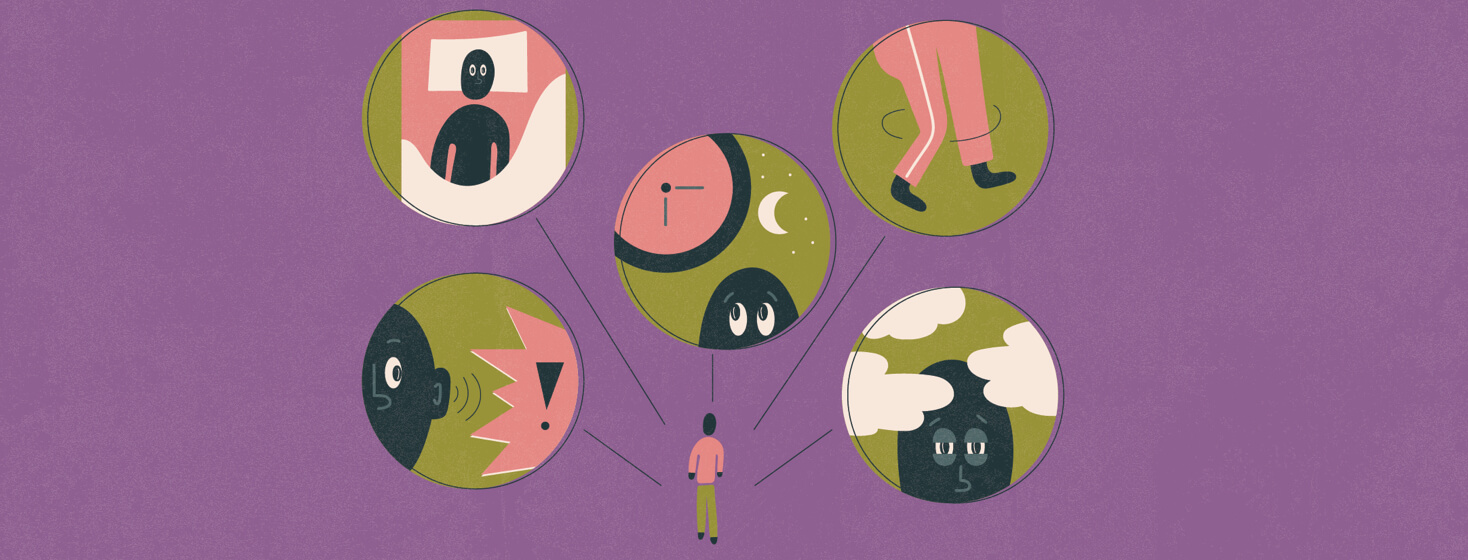The 5 Symptoms of Narcolepsy and What That Looks Like for Me
When I was first diagnosed with narcolepsy, I went online, watched videos, and read articles to learn as much as I could about my new diagnosis.
Although there are 5 symptoms, the severity of each can be different for each person. Here are the 5 symptoms of narcolepsy and what they look like for me:
Sleep paralysis
Sleep paralysis is the temporary inability to move or speak while falling asleep or waking up. I had this symptom since I was a child, so I never knew it had to do with narcolepsy. It didn't happen a lot, but it scared me enough each time to remember.
It feels like a ghost is holding me down and not allowing me to wake up. Although it lasts maybe 30 seconds, it feels like forever. I always felt like a crazy person trying to explain to my parents how it felt. Luckily, my uncle had also experienced sleep paralysis, and he helped explain what was happening to me.
Cataplexy
Cataplexy is the sudden loss of muscle control usually caused by emotions. Growing up, my dad had always complained of having bad knees. Whenever my knee would give out occasionally for a split second when I walked, I considered it a hereditary trait of having bad knees. I also experience cataplexy through my face and neck region.
My cataplexy shows up with different emotions generally at the end of the day when I am exhausted. When something is funny or when I become mad about something, it usually happens. One night, I was losing in monopoly and had 3 cataplexy episodes back to back.
Hallucinations
Hallucinations are sensory experiences that appear real but are not. For the longest time, I thought this symptom didn't apply to me. It wasn't until I read about someone else's experience that I realized that I do hallucinate.
It was one night in college before I was diagnosed, and probably one of the scariest moments of my life. I was sleeping in my bed, and I heard a noise that sounded like multiple conversations in a lunchroom. That noise got louder and louder, and then I heard a loud bang, and it caused me to jump out of my bed. That night I couldn't go back to sleep in fear of it happening again. Luckily, nothing like that has happened again.
Sleep disruption
Sleep disruption is sleep that has been disturbed, leading to an inadequate ability to perform to one's best ability. Without my medication that helps me sleep, I tend to wake up every 45 mins during the night. By morning, I am exhausted. I tend to have trouble remembering things and staying focused. I become incredibly irritable and experience excessive daytime sleepiness.
Excessive daytime sleepiness
Excessive daytime sleepiness (EDS) is when you become tired frequently throughout the day. Before being diagnosed, I would fall asleep anytime I was sitting for more than 10 minutes. EDS can also be in the form of what some call cloudiness or sleep spells.
Sleep spells are when someone is physically functioning and appears to be awake but is mentally asleep. Automatic functions can take place, but there is no mental capacity taking place. For example, during a sleep spell, I put my popsicles in the microwave and spent 10 minutes trying to toast bread in an unplugged toaster. My sleep spells occur 1 to 2 times a day, depending on my activity level. Sometimes, I can move around enough for the sleepiness to go away.
What narcolepsy symptoms do you experience and what do they look like for you? Tell us more in the comments below!

Join the conversation